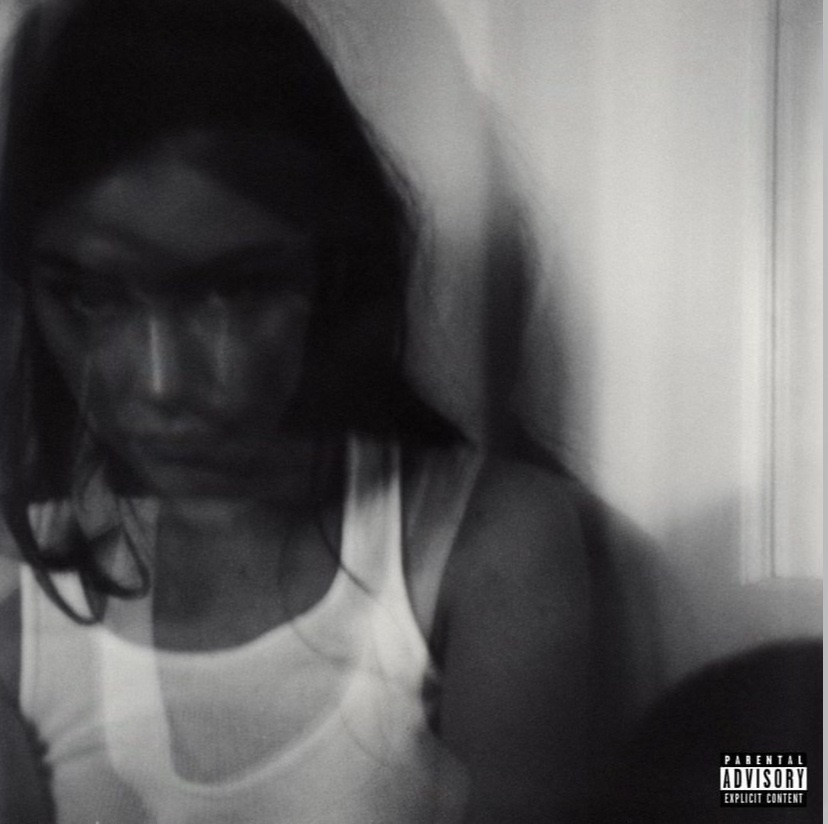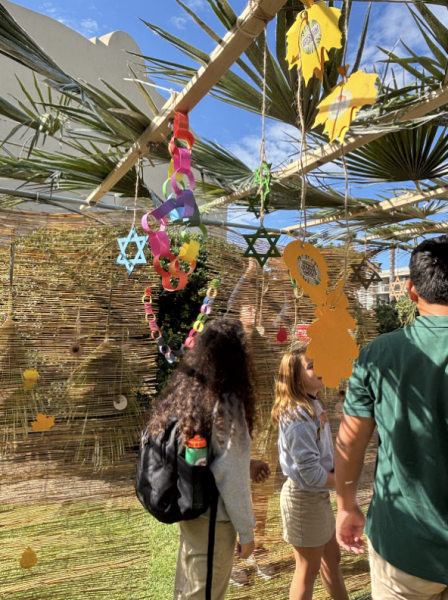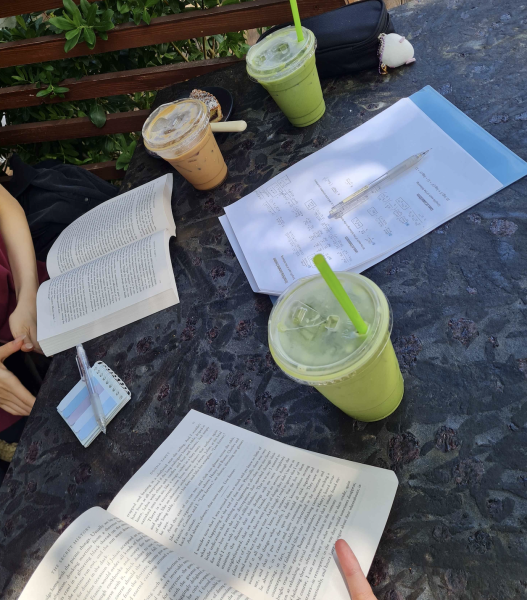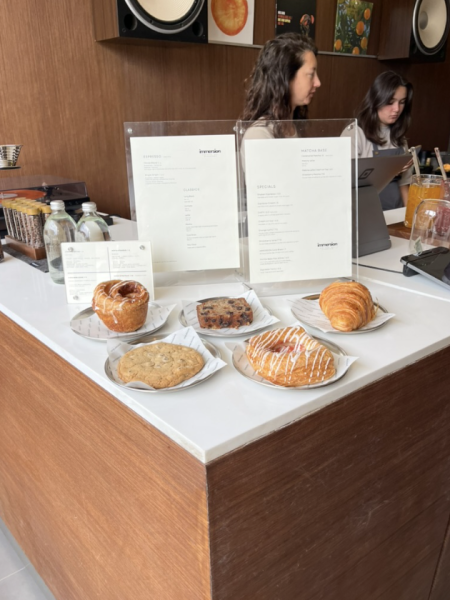An Emotional Debut: Good Riddance Album Review
In addition to Good Riddance, Abrams’s backlog includes a six song EP from 2020 called minor, and This Is What It Feels Like a twelve song EP from 2021.
“This album means the most to me for a million different strange and complicated and delicate reasons,” said singer-songwriter Gracie Abrams on her debut album, Good Riddance, which she shared with the world on February 24th, 2023.
The daughter of famous filmmaker J.J. Abrams, as well as a friend of pop-star Taylor Swift, Abrams has been fortunate in her connections to the music industry and to mainstream media throughout her life. But with her soft, acoustic melodies and raw, addictive singing style, she has begun to make a name for herself and her music — separate from any connections she may have.
Both her musical and personal growth are only exemplified in Good Riddance. “I came out a different person on the other side of [the album],” as Abrams explained herself. Every song details her internal struggles with excruciating honesty, and the more acoustic style only makes the listener feel ever-so-much closer to her voice and lyrics. Every listen is like attending an intimate live concert ten feet away from the performer — regardless of the fact that the music plays from cell phones and car radios.
Nevertheless, recurring themes of mental conflicts, complicated relationships, and self-reflection inevitably lead to songs that tend to blend together. And Abrams’s soft, whispery voice can sometimes make the listener lose themselves in the admittedly similarly-produced tracks that make up the record.
But ironically, this same voice that can daze and distract you, also manages to consistently pull you back into the world of Good Riddance. And with every listen, the songs start to separate themselves more and more — until they are each uniquely their own. Melodies and storylines become independent of one another, as you begin to truly appreciate things that may have gone over your head on the first listen.
You notice things like the vivid reminiscing in “Best” and “I should hate you,” the intriguing instrumentation underneath “This is what the drugs are for,” and the rich metaphors in “Full machine,” and “Fault line.” Of course, you also start to recognize more positive themes within the melancholy album, in songs like “The blue” and “Right now,” making the record feel less sad, and more bittersweet. And ironically, as you pay more attention, both the catchier beats of “Where to do we go now,” “I know it won’t work,” and “Difficult,” and the raw, underproduction of “Amelie” help make them stand out.
The nuances and subtleties of Good Riddance that you discover as you explore the album are arguably more satisfying than if you’d loved every song right from the beginning. You get to find meaning — it isn’t just handed to you.
Nevertheless, there are some songs on the record that catch your attention from the very beginning. “Will you cry?,” a track where Abram details her plans to break up with someone in an almost eerie manner, will jump out at you from the start. With its minor key and delicate instrumentation, Abrams lays out the different ways in which the recipient could respond to her breakup. “Will you cry if I let go?” she asks, “Would it not kill to say goodbye?”
Abrams’s sympathy and concern for the person she plans to break up with, while simultaneously recognizing she is the one that will inflict pain on this same individual, creates an original perspective. This juxtaposition — and the song’s haunting production — is part of what makes the track so special.
Another song on the album that stands out is “This is what the drugs are for,” characterized by a light, folky guitar that overlays her typical melancholy lyrics and production. In this track, she sings, “In the middle of the night / I got caught inside a fever” — and ironically, listening to this song almost feels like experiencing a fever dream. It’s nostalgic and familiar and hazy, beautiful in a soothing and ghostly way.
On a more literal level, “This is what the drugs are for,” is about Abrams not being able to move on from a past relationship. “Look, now I’m alone again / I’ve gotten used to sleepin’ here without you,” she sings in the chorus. Yet in the bridge she ultimately admits, “Old distractions, in the end, don’t work / I’m left to sit and think about you.” Though you notice the unique instrumentation from the beginning, you appreciate the beautifully written, heartbreaking lyrics more and more with every listen.
Though maybe not one of the songs that pops out to you at the very beginning, “Amelie,” is certainly one of the most emblematic tracks of Good Riddance — a song you didn’t fall in love with when you first heard it — but instead, grew to love.
Released as a single two weeks before the album came out, it features Abrams’s voice with little production and a similar tone throughout the entirety of the track, as she sings about a girl named Amelie.
On a first listen, “Amelie,” can fall a little flat. Though captivating, Abrams’s voice seems to be the sole element of this song. It feels more like a demo than a produced track. But just like most songs on this record, your opinion of “Amelie” won’t remain stagnant. Without much other production, you can appreciate every emphasis Abrams makes, every word where her voice breaks or changes pitch or becomes a whisper. You can begin to treasure the raw emotion of the song — one of the driving themes of “Amelie.”
Abrams is heartfelt and honest with every lyric in this track. “I met a girl once / She sorta ripped me open,” she sings in the verses. “Why’d it feel louder / When all of it went unspoken? / All I can do is hope that / This will go away.”
The chorus of the song exemplifies the muddled and confusing emotions Abrams feels towards Amelie — even potentially suggests she isn’t real, but just a figment of Abrams imagination. “Where’d you go? / Or were you all in a dream / Amelie, Amelie?” Abrams asks. The distinct identity of Amelie isn’t clear to the listener — some have suggested she may represent a past version of Abrams. You don’t know exactly who Amelie is, who she was to Abrams, or what she represents. The listener is intentionally lost in the haze of Amelie — just like Abrams was.
“Amelie,” however, certainly isn’t the only song that grows on you. One you realize a metaphor described in “Full machine”: trying to leave a message on answer machine mirroring Abrams trying to reach out to someone who doesn’t have the time for her, the song is so much more meaningful. And once you get past the repetitive chorus of “I should hate you,” you can truly appreciate its impressive bridge — arguably the strongest one on the album.
Abrams, of course, still has room to grow with her music. As she experiments with more diverse production and themes in the future, she’ll only become a stronger artist. But as her debut album, Good Riddance feels like an earnest, true reflection of Abrams and what she is feeling. This record is a place where heartfelt, open, and daringly honest lyrics not only live — but thrive. And as her authentic and unique voice begins to mesh with more experience and time to develop as a singer-songwriter, her music will only get better.
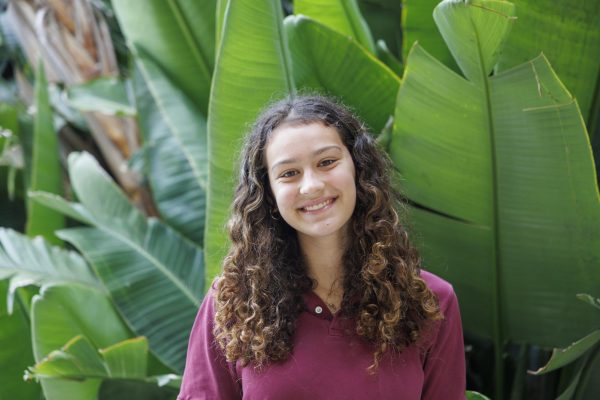
Nora Bitar is a senior and the Managing Editor for The Tower. Her favorite type of articles to write are music reviews — which she can’t wait to do...


